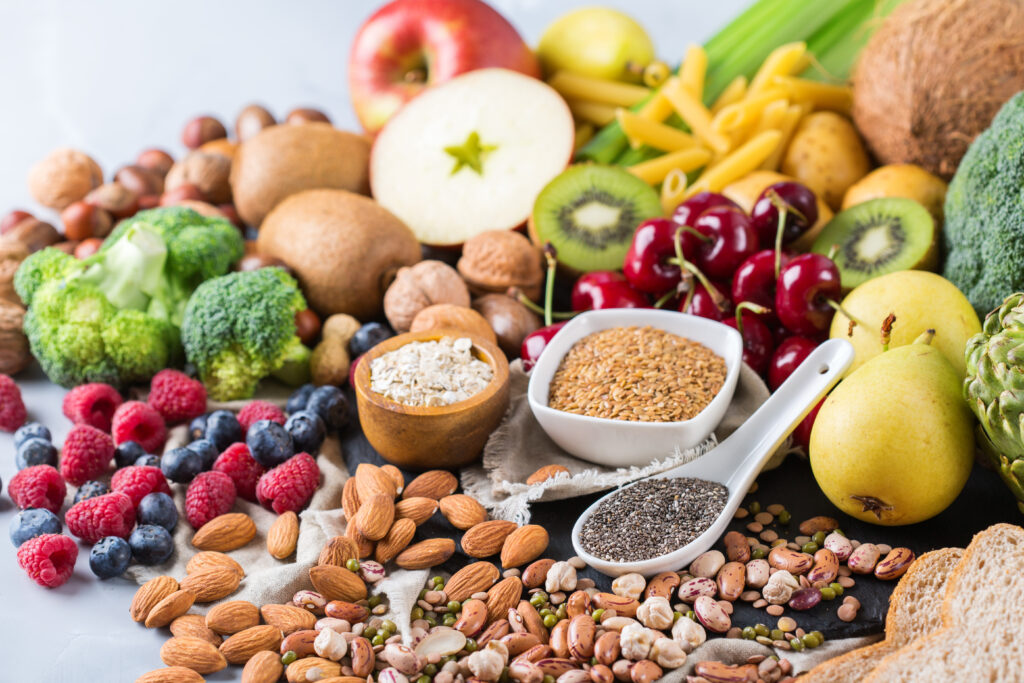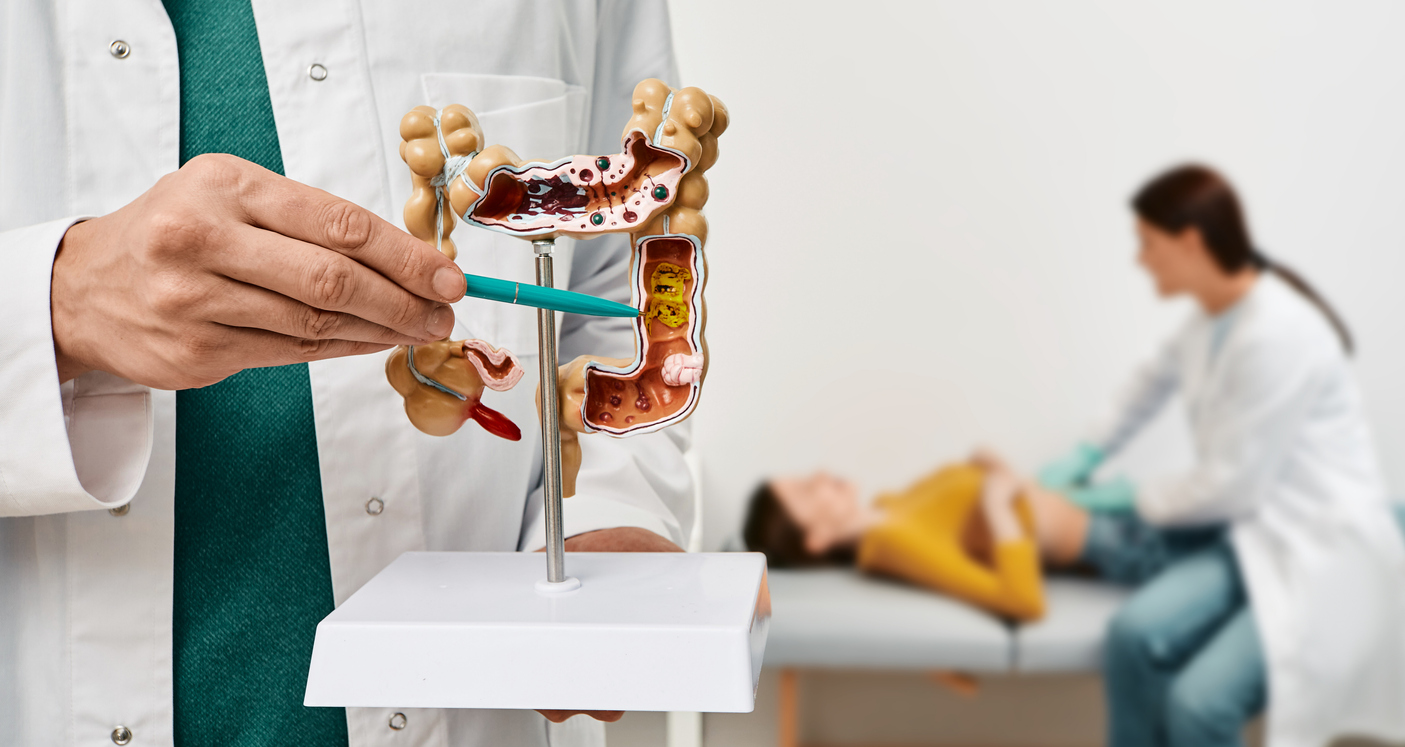Sometimes your stomach ache isn’t about what you ate but about what your gut is missing.
It starts subtly, a dull ache after lunch, an occasional cramp, or a bloated, uncomfortable feeling that comes and goes. You might blame coffee, stress, or even start questioning something you ate. But sometimes, that nagging discomfort is trying to tell you something deeper.
Your daily habits can quietly throw your body off balance, leaving you feeling heavier or more uncomfortable than usual. Paying attention to these signals could be the first step to finally feeling lighter and more balanced.
Understanding what might be behind these common aches can help you make small changes that make a big difference, and it all starts with knowing what to look for.
What’s Really Going On in Your Gut

We hear about fiber all the time, yet it’s one of the most underrated nutrients in our diet. Unlike most foods that get broken down and absorbed, fiber moves through your system mostly untouched, quietly doing the work your gut depends on every day.
Think of it as a broom; fiber helps sweep away waste, nourishes the good bacteria that keep your digestion balanced, and keeps everything moving at just the right pace.
There are two main kinds of fiber, and both play their part beautifully.
- Soluble fiber blends with water to form a gentle, gel-like texture that slows digestion, keeps blood sugar steady, and feeds the good bacteria in your gut.
- Insoluble fiber adds bulk, helping food pass smoothly through your system and keeping things regular.
When you don’t get enough of either, your gut has to work harder than it should. Food lingers longer, gas starts to build up, and even small meals can leave you feeling heavy or uncomfortable.
How a Fiber Deficiency Can Cause Stomach Discomfort
A diet low in fiber can quietly trigger a chain of digestive issues. You might not notice them right away, but over time, they begin to show up as the random stomach aches you feel. Here’s what happens inside your gut when fiber is missing.
1. Slower Digestion Leads to a Buildup
When your diet lacks fiber, your digestive tract slows down. Food stays longer in your system, and that extra time can cause pressure to build inside the stomach. You might feel a slight discomfort or that heavy, “stuck” sensation after meals that doesn’t disappear immediately. Research shows that insoluble fiber helps speed up the passage of food through the intestines, supporting faster metabolism and regularity.
2. Gas and Bloating Become More Common
When food lingers too long, it gives gut bacteria extra time to ferment it. The result is gas buildup, tightness, and sometimes cramping around the belly button or lower abdomen. What starts as light bloating can quickly feel like a sharp or twisting pain when gas presses against the intestinal walls. A clinical study suggests that low fiber diets may lead to inefficient digestion, which can promote gas retention and abdominal bloating.
3. Your Gut Bacteria Get Out of Balance
If you’ve gone a few days with little to no fiber, you may notice your stomach feels more reactive or sensitive. That’s because your gut bacteria are running low on their main food source. When that balance shifts, digestion slows down and inflammation can rise, creating that sore feeling in the stomach area. Studies have shown that a low-fiber diet can lower the production of short-chain fatty acids, compounds that keep your gut lining healthy and calm.
4. Inflammation Increases Over Time
Without enough fiber to help move waste and regulate the gut environment, toxins can linger longer in the system. This can irritate the gut lining, making it more tender and sensitive to movement or even normal digestion. Over time, the result can be recurring mild stomach aches or cramping that seem to appear for no clear reason. Research also links long-term fiber deficiency to higher inflammatory markers in the gut, which may explain why discomfort becomes more common when your diet lacks fiber.
These signals aren’t the sharp pains that send you to the doctor. They’re more like gentle reminders that your gut needs a little more care.
How to Tell If Your Stomach Ache Is Serious

Not every stomach ache means the same thing. Some pass after a few hours, while others keep coming back or get worse with time. Learning to tell the difference can help you understand what your body really needs, whether it is rest, hydration, or a closer look from a doctor.
-
Notice How Strong It Feels
A mild stomach ache that fades after a few hours or improves after resting, drinking water, or eating lighter meals is usually nothing serious. But if the pain is sharp, feels like burning, or wakes you up at night, that could point to something more serious, like an ulcer or an infection that needs medical attention.
-
See How Often It Comes Back
Occasional stomach aches happen to everyone, especially after eating too quickly or consuming too much caffeine, or after an accidental food poisoning. However, if the pain and discomfort keep coming back and become part of your daily routine, it could be a sign that something more serious is going on and should not be ignored.
-
Pay Attention To Where The Pain Started
Discomfort from simple indigestion or a mild digestive imbalance usually feels spread out across your lower or upper abdomen, but sharp or focused pain on one side, especially if it gets worse with movement, might be a sign of appendicitis or another condition. Paying attention to exactly where the pain occurs is important because the location itself can give clues about what’s going on.
-
Look Out For Other Symptoms
If your stomach ache is mostly accompanied by bloating, sluggishness, or irregular digestion, it is often linked to what and how you eat rather than a medical emergency. But if it comes with fever, vomiting, blood in your stool, or sudden weight loss, it is best to see a doctor right away.
-
Listen to Your Body’s Cues
Sometimes your gut gives clear clues. If drinking more water, adding fruits and vegetables, or managing stress noticeably improves your digestion, that suggests your system was simply out of balance. If none of those changes help or if pain worsens, it might be a sign to seek professional care.
Your gut has its own rhythm, and occasional discomfort is normal. Often, it’s the small daily habits that quietly make stomach aches more common.
Everyday Habits to Keep Your Stomach Comfortable

Before your stomach ache becomes something more serious, it’s better to start caring for it early. The good news is that small changes can help your digestion feel lighter and calmer in just a few days.
-
Meet your fiber needs each day
To help reach your daily fiber goal, always include fruits, vegetables, and whole foods in your meals. Women should aim for about 25 grams of fiber per day, and men around 38 grams. Adding even a few servings of vegetables or fruit each day can make a noticeable difference in how comfortable your stomach feels.
-
Avoid processed and refined foods
Packaged snacks, white bread, and refined carbs contain little to no fiber. Try swapping a few of these foods for options that contain real ingredients to give your gut something to work with.
-
Reach daily water intake
Fiber needs water to do its job. Without enough hydration, fiber can’t soften waste or move it along efficiently, which can lead to cramping and sluggish digestion. Aim for at least 8 glasses or about 2 liters of water to keep your digestion running smoothly.
-
Reduce caffeine consumption or stress
Both caffeine and stress can irritate your digestive system and slow things down. Combined with a low-fiber diet, this can lead to random stomach discomfort or bloating. Balancing coffee with enough water and finding ways to relax can help your gut recover.
-
Eat mindfully and don’t eat too fast
Rushing through meals often means swallowing extra air and not chewing enough. This small habit can lead to gas, bloating, and that “overly full” feeling even after a moderate meal. Take a few extra minutes to chew slowly and enjoy your food.
Keeping a healthy gut does not mean changing everything at once. Start with one new habit each week, such as adding oatmeal to your breakfast, a handful of greens for lunch, or a short walk after dinner. Small, steady steps like these help your digestive system find its balance again, naturally and gently.
Support a Calm, Comfortable Stomach With Future Salad

Random stomach aches can sneak up on anyone, but Future Salad is here to help. Convenient, all-natural, and packed with fiber, it keeps digestion regular, supports gentle detox, and reduces the discomfort that comes from a sluggish system. By giving your body the fiber it needs, it helps you feel light, balanced, and comfortable every day.
-
Delivers 6g of Natural Fiber per Pack
Each serving of Future Salad Detox Drink Mix provides the fiber equivalent of five bowls of salad. This gentle boost helps keep digestion moving, eases that heavy or bloated feeling after meals, and supports smoother daily regularity.
-
Supports Daily Digestion and Gut Balance
When your body gets enough fiber each day, digestion feels easier and lighter. Future Salad Detox Drink Mix helps your stomach process food efficiently so you don’t feel weighed down or sluggish after eating.
-
Made with 12 Superfood Ingredients
Every pack of Future Salad Detox Drink Mix is made with plant-based, fiber-rich foods chosen to support your gut health. Ingredients like moringa leaves, spirulina, wheatgrass, aloe vera, and more work together to reduce bloating, calm inflammation, and help maintain smooth digestion.
-
Gentle and Non-Laxative Formula
Unlike harsh detox teas or synthetic fiber supplements, Future Salad Detox Drink Mix works with your body’s natural rhythm. It delivers consistent support without cramps, chemicals, or dependency, just clean comfort you can feel good about.
-
Quick, Convenient, and Easy to Digest
Eating enough fiber-rich foods can be a challenge. One serving of Future Salad Detox Drink Mix gives your gut the nutrients it needs to stay calm and pain-free, making it an effortless way to care for your digestion every day.
If you’ve been brushing off those random stomach aches, it might be time to listen closer. Your gut has its own way of communicating, and sometimes, it’s simply asking for more fiber because a happy gut doesn’t ache for attention; it thrives quietly when it’s well-fed and balanced.
So before you reach for another antacid or skip a meal, try nourishing your gut instead.
Stop guessing what’s wrong with your gut. Give it the fiber it’s been missing with Future Salad. 🥗

